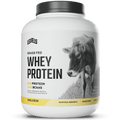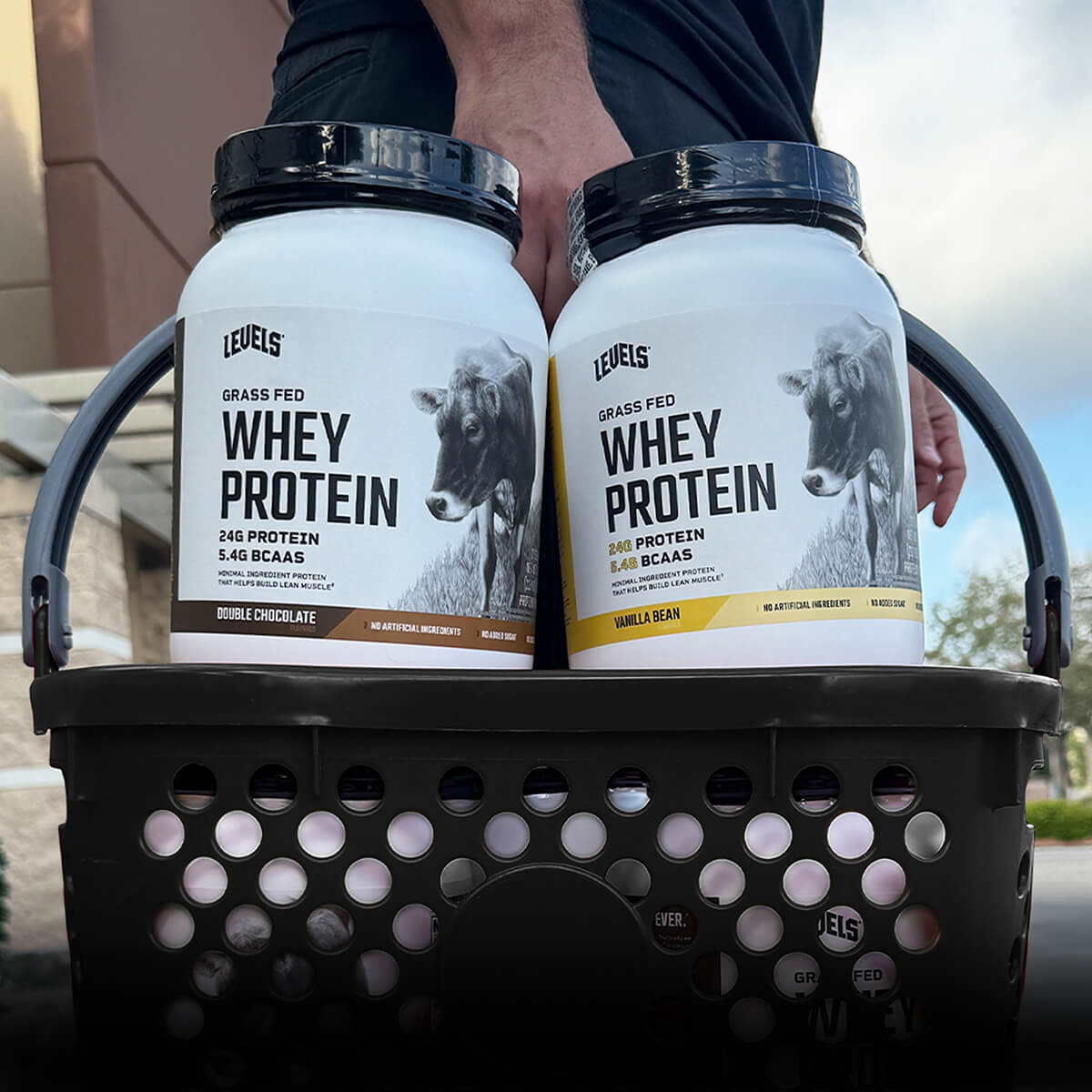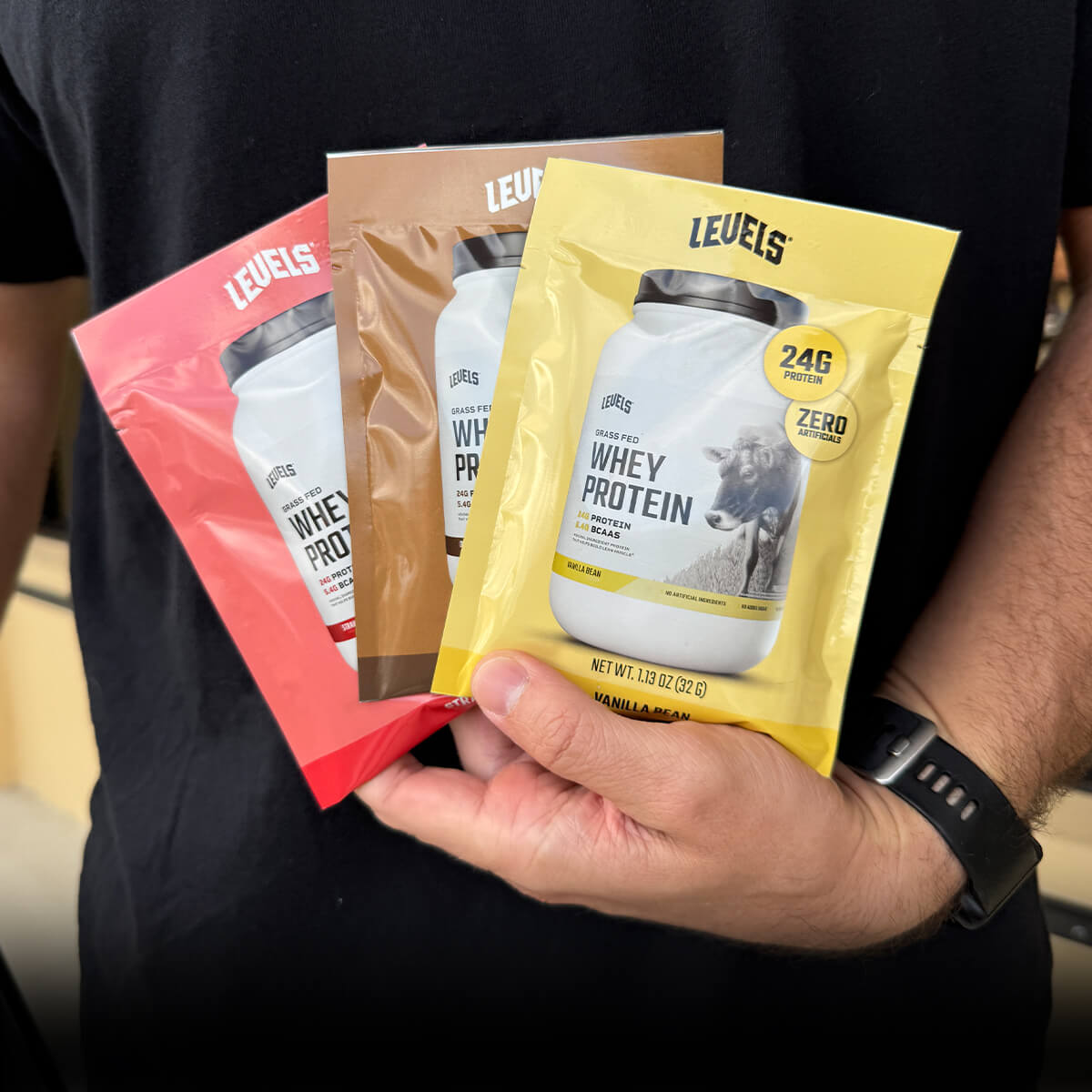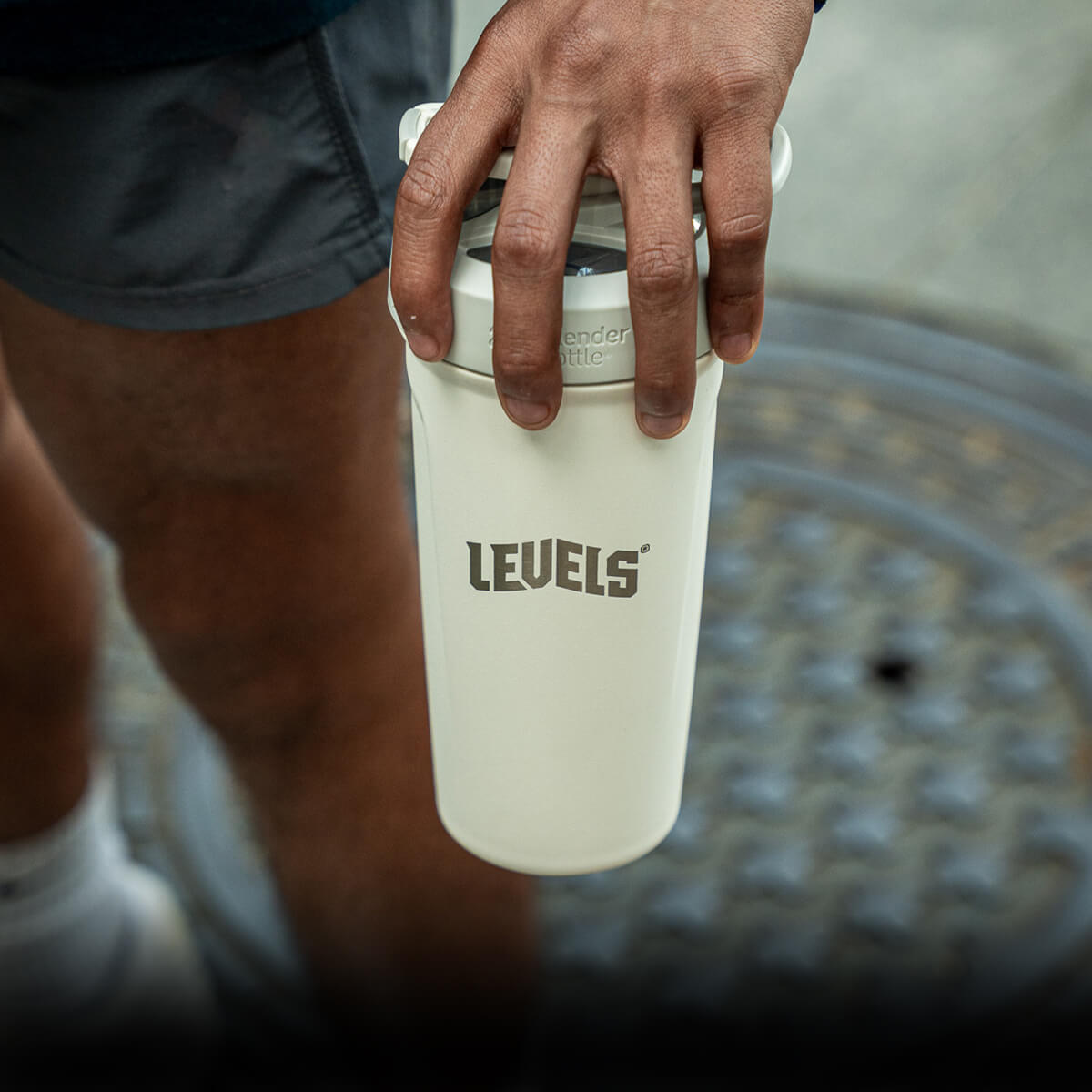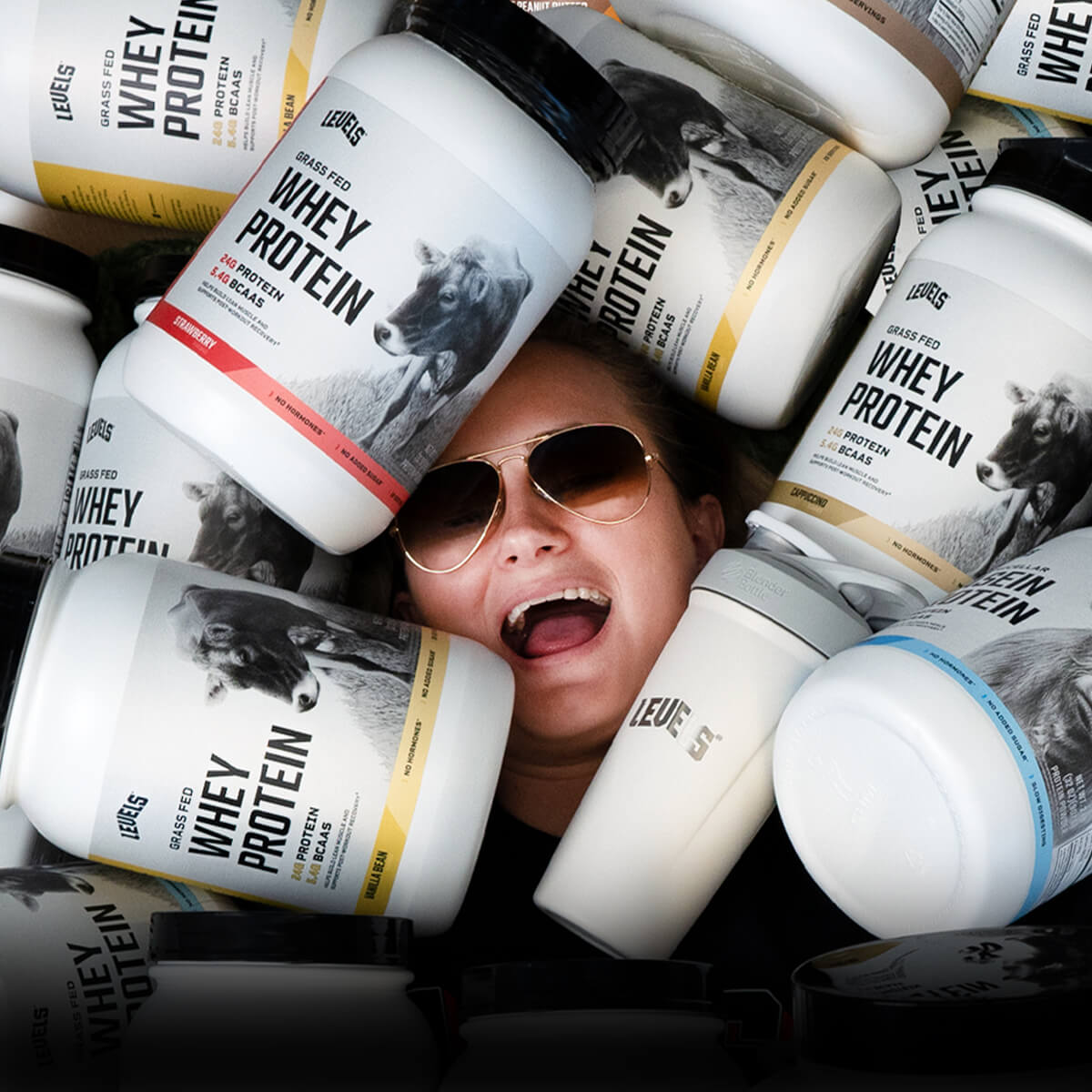Every food you eat is made of micronutrients (vitamins and minerals) and macronutrients (carbohydrates, protein, and fat).
While all three macronutrients are essential for life, protein gets a lot of attention in the health and fitness space due to its effects on muscle synthesis[*].
However, protein does much more for your body than simply keeping your muscles strong and toned. In your digestive tract, protein breaks down into smaller components called amino acids. These amino acids then enter your circulation and carry out the functions of your immune system, metabolism, and transport of nutrients. They also make up the building blocks of every tissue in your body[*].
For this reason, high protein diets (like keto or paleo) have become increasingly popular for overall health, as well as muscle-building.
But here’s the deal; when people start consuming more protein, sometimes they begin to notice a lot more gas -- AKA protein farts. Aside from the general embarrassment, this can cause, it can also be pretty uncomfortable digestively.
So how can you get in enough protein without this unfortunate side effect? First, let’s explore the common culprits for protein farts, and then we’ll tackle how to get rid of them.
What Causes Protein Farts?
Too Much Protein
The primary reason you may experience gas when eating protein is that you’re consuming too much protein.
When you eat protein, it enters your stomach then moves down into your small intestine, where it’s broken down into amino acids and absorbed. However, if you consume too much protein, some of it can reach as far as your colon -- where your gut bacteria can use it for food.
When the bacteria (AKA microbiota) in your colon digests protein, it causes the production of hydrogen sulfide gas. This makes you feel bloated and...well...gassy[*].
The first step to take if you’re noticing gas is to cut back on protein a bit. While this macronutrient is essential for health, it’s still possible to consume more than you need.
Food Intolerances
Unlike a food allergy, which is a response by your immune system to a specific protein that it doesn’t recognize, food intolerance tends to be much less severe. However, in many cases, when you consume food that you have an intolerance to, the first symptoms of unease will come from your digestive system[*].
Common symptoms of food intolerance include stomach aches, cramps, bloating, foul-smelling gas, irritable bowels and sometimes nausea.
One of the most common food intolerances is lactose intolerance. Lactose is actually a carbohydrate, not protein, and it’s found in some whey protein powders. If you have issues digesting dairy, then consuming whey protein may cause gas[*].
Antinutrients In Plant-Based Protein
Plant-based proteins, especially legume-based varieties, may contain antinutrients that contribute to gas formation[*]. Antinutrients are naturally occurring compounds in plants that inhibit some of the functions of digestion.
Whether you’re eating whole foods or protein powders that contain these antinutrients, you may notice that introducing more legume-based protein results in an increase in gas.
Protein Farts: 6 Tips to Stop Them
Now that you have an idea of why you may experience protein farts let’s talk about some solutions.

1. Eat Less Protein
As mentioned above, if your protein intake is exceeding what your digestion can handle, then you may want to cut back a bit. High protein foods include eggs, meat, and dairy -- these are the ones that you don’t want to go overboard on. But don’t worry -- you can still reap all of the benefits that protein has to offer by consuming the right amount for your body.
If, however, you feel that you haven’t been surpassing your limit of protein, then you may want to try some of the following recommendations.
Subscribe to get the latest advice, sales, discounts, product drops and more. Join now and get 15% off your first order.
2. Take Digestive Enzymes
In some cases, the issue may be that you’re not properly breaking down and digesting the protein you eat. Many people experience reduced levels of digestive enzymes -- especially as they get older.
Taking supplements that contain enzymes will help your digestive system turn the protein you eat into amino acids so it can be more readily absorbed in your small intestine. That is, instead of becoming food for the bacteria in your colon[*].
3. Eat More Fiber
Your gut microbiotas love fiber. And when given a choice between fiber and protein, they’ll choose fiber every time.
Therefore, if you want to keep your gut bacteria busy, increase your fiber intake so they don’t go after the protein[*][*].
4. Take Probiotics
Gas is one of the primary symptoms of an imbalance in gut bacteria. Your gut bacteria can become imbalanced for several other reasons too. Stress, poor diet, and inflammatory conditions are just a few[*].
Two general categories of bacteria live in your gut -- healthy bacteria and unhealthy bacteria. Healthy bacteria helps to balance out the unhealthy, harmful bacteria that populate your gut. All of the bacteria that live in a particular environment make up what is referred to as a microbiome. Therefore, healthy and harmful bacteria create the microbiome of your gut. In a balanced gut microbiome, you will have more healthy bacteria than unhealthy, and digestion will run smoothly.
Issues arise, however, when your unhealthy bacteria start to outnumber your healthy bacteria. This is where digestive issues can begin, and symptoms like gas and bloating start to occur.
Probiotics can help rebalance your microbiome and relieve some of the digestive issues that come along with dysbiosis (gut bacteria imbalance)[*].
5. Switch Up The Protein You’re Consuming
If you’ve been chugging down plant-based proteins and noticed it’s giving you gas, you may want to switch over to other options like whey protein, collagen protein or egg protein.
Since each protein will come with its benefits and potential downfalls, switching it up could help you identify if it's the protein itself that’s causing the problem, or perhaps another nutrient in the mix.
6. Incorporate Gas-Reducing Herbs Into Your Diet
For every health issue that you face, nature has a solution. And that includes the issue of gas associated with protein intake.
There are several herbs and spices that are known as “carminatives.” A carminative is an herb that helps to relieve gas and bloating from your digestive tract.
Some examples of carminatives include:
- Fennel
- Chamomile
- Coriander
- Peppermint
- Cardamom
- Cumin
- Ginger
These herbs can either be added to meals or for a more potent dose, steep them in hot water and drink them as tea.
Takeaway
There’s no need to throw in the towel on your diet just because you’re experiencing protein farts.
First, try to identify the cause of your gas. If it’s simply too much protein in your digestive tract at one time, that’s easy -- cut down or try eating smaller meals.
Otherwise, try out the remedies mentioned above until you find the one that works for you.
